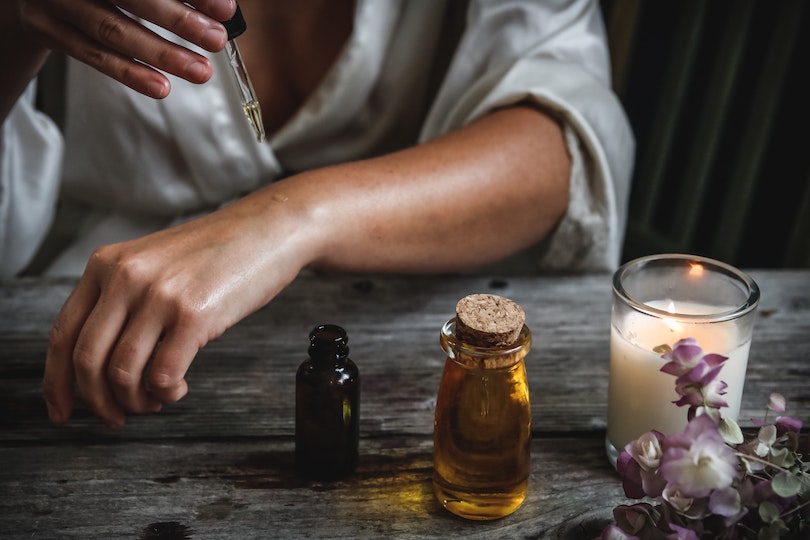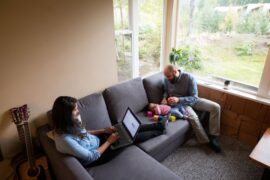Justin and Hailey Bieber credit couples therapy as the foundation of their happy and successful marriage.
Hailey Bieber recently admitted on a podcast with fellow model Ashley Graham that she and Justin Bieber entered pre-marital counselling to air and heal their past grievances before getting married. Couples therapy helped strengthened their bond.
“Things start to just kind of pour out when you’re married,” Hailey shares, “because you’re like well, you’re here so might as well just tell you everything and tell you that that bothered me and that actually hurt my feelings.”
Couples therapy allowed them to unpack any issues that were holding them back and to arrive at a place where their relationship continued to improve.
Does relationship counselling actually work?
As shown in a study conducted by the American Association of Marriage and Family Therapists, relationship counselling has proven to work with more than 97 per cent of the study believing they got the help they needed. Another 93 per cent say they developed better tools to deal with their problems.
Within the mainstream narrative, couple’s counselling appears to be a last ditch effort or a ‘Hail Mary’ to fix a relationship or marriage. Instead, it can be utilised as a way to strengthen relationships and create a safe space for couples to be more vulnerable with each other.
For those in healthy and stable relationships, relationship counselling can benefit by helping tackle issues such as the pressures of digital society or individual growing pains.
Giving in to 21st century pressures
Couples in long term, comfortable relationships may begin take each other for granted and ignore one another when they are spending time together. One of the biggest challenges for couples in today’s world is ‘phubbing’ which refers to the act of ignoring your significant other in favour of technology.
A recent survey conducted by the Hankamer School of Business found that 46 per cent of respondents have been phubbed by their partner – with 23 per cent claiming it created conflict in their relationships. According to the Professor of the study, James Roberts, this eventually translated into lower levels of relationship satisfaction with 37 per cent responding they felt depressed.
Concentrating on your device after a long day may seem harmless but according to Stanford and Yale psychologist, Emma Seppala, phubbing severely “disrupts our present-moment, in-person relationships”.
Dr Seppala recommends implementing strict no-technology rules during meal and family times to put an end to phubbing within relationships. Attention-based practices, such as mediation and mindfulness, to retrain and relearn new habits can also be useful.
Keeping smaller issues small
Big issues in relationships often stem from what was once a smaller struggle. Couples tend to only rely on counselling when they realise they are unable to solve their own problems. Psychologists and clinicians, Robert Levenson and John Gottman, find that the sooner a problem is addressed through counselling, there is more of a chance of the relationship working.
Relationship counsellor, Racine Henry, recommends therapy for couples that don’t have big issues but are feeling “stuck” in certain parts of their lives. When people go through big life changes, couples may need therapy to grow together and relearn each other’s perspectives.
Therapist, Alisha Powell, encourages couples to implement these actions on their own. “A good relationship consists of doing small things consistently and checking in with each other,” she says.
Bettering communication
One of the largest challenges couples face is communicating with each other, although many do not realise they are failing in this aspect.
Marriage and family therapist, Michel Horvat, says a counsellor helps “facilitate communication and understanding of each other’s motivation and ongoing resentments and assumptions that might have built up over the development of the relationship.”
In an analysis on relationship education and counselling, researchers on marriage counselling, Alan Hawkins and Theodora Ooms, discovered that couples with little to no problems still managed to better their communication skills in therapy with 50 to 60 per cent of couples acknowledging their communication skills had improved.
Remodelling your relationship template
According to psychologist, Doctor Crystal Lee, the way couples interact with each other can be derived from what they’ve learned during their formative childhood years. Parents are usually children’s first example of a romantic relationship. “Just as we learn how to speak and behave from our parents,” she says, “we implicitly learn relationship habits from our parents.”
This impacts the way adults navigate different aspects of their relationships such as how they deal with commitment, how they communicate and even how they deal with finances. When adults engage in their parents’ bad relationship habits, it can become problematic for their romantic partnerships.
The first step is to become aware of these bad habits. Relationship counsellor Dr Lee says that “once you’re aware that you’re engaging in bad habits, you can intentionally act differently”.
Couples therapy can be a useful tool for couples to rebuild their relationship but it can also be beneficial to keep a relationship on track. Licensed family therapist and Doctor of Psychology, Harel Papikian, says, “ultimately the goal is to change the patterns of relating”. By engaging with couples counselling, if problems and issues do arise, couples can be better equipped to deal with them.
Doctor, Beverly Flaxington, encourages couples to stop waiting to for something to change and to get up and make the necessary changes that will nurture their relationship.
She credits author, Mark Victor Hansen’s words, “Don’t wait until everything is just right. It will never be perfect. There will always be challenges, obstacles, and less than perfect conditions. So what? Get started now.”







